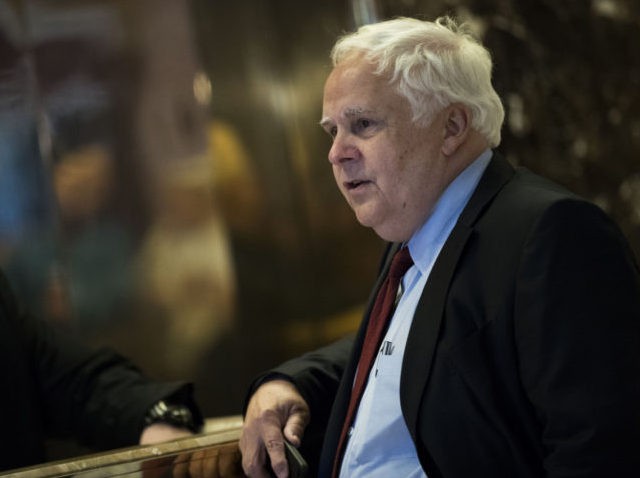The American political tradition of issuing public challenges to resolve disputes among public figures got a breath of new life over the weekend when the founder and chief executive of FedEx invited the publisher of the New York Times to debate him over taxes.
FedEx chief Fred Smith, who started the delivery and logistics company based on an idea he developed for an economics class at Yale University, said in a statement Sunday that a New York Times story about FedEx’s tax bill was “distorted and factually incorrect” and “an outrageous distortion of the truth.”
“I hereby challenge A.G. Sulzberger, publisher of the New York Times and the business section editor to a public debate in Washington, DC with me and the FedEx corporate vice president of tax,” Smith said.
The New York Times claimed that FedEx and Smith had lobbied extensively in favor of the Trump administration’s tax cuts and that the law had reduced the company’s tax bill by at least $1.6 billion. The story did not provide details of the alleged reduction in Fed Ex’s tax bill but noted that the company paid $1.5 billion in 2017 and $2 billion over the past decade.
The tax cut aimed to encourage investments and capital spending but the New York Times claims it found “no statistically meaningful relationship between the size of the tax cut that companies and industries received and the investments they made.”
“As for capital investments, the company spent less in the 2018 fiscal year than it had projected in December 2017, before the tax law passed,” the New York Times reported. “It spent even less in 2019.”
The 2017 tax bill’s reforms were not aimed, however, to create a one-on-one relationship between tax cuts and increased investment. Instead, it was aimed to boost overall investment above where it would been in the absence of the cut. The New York Times analysis did nothing to undercut that rationale.
“The focus of the debate should be federal tax policy and the relative societal benefits of business investments and the enormous intended benefits to the United States economy, especially lower and middle class wage earners,” Smith said.

COMMENTS
Please let us know if you're having issues with commenting.